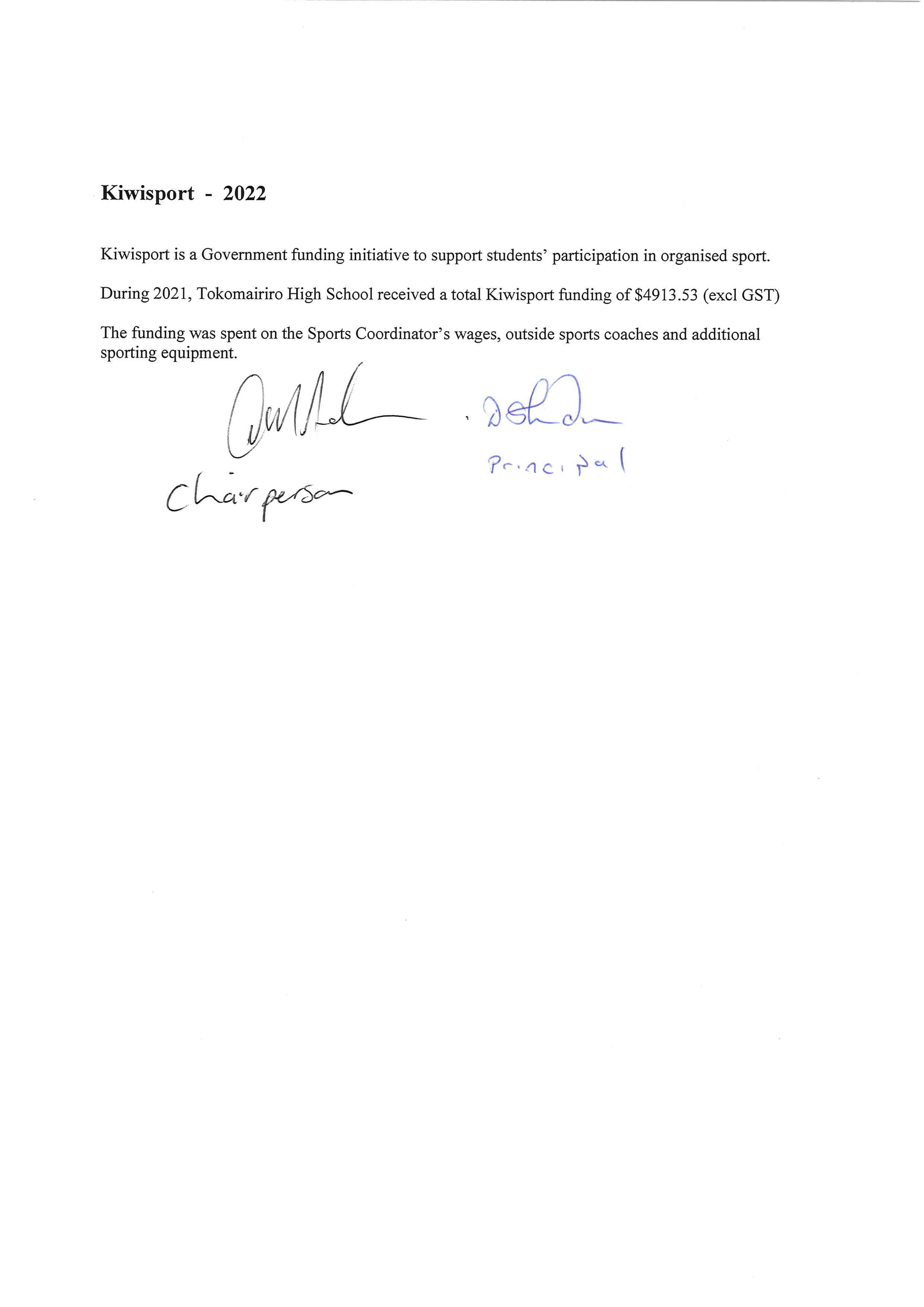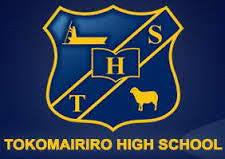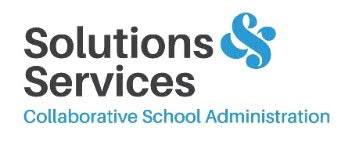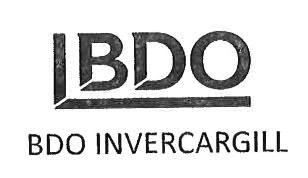Analysis of Variance Reporting 2022
School Name: Tokomairiro High School
Analysis reporting
School Number: 392
Strategic Aim: Strategic aim 1: Academic Achievement - Inspire, engage and challenge all students to achieve personal excellence in learning
Annual Aim: Annual aim 1: Striving for personal excellence in NCEA
Annual aim 2: Year 7 – 10 students will strive for personal excellence
Target: The rate of NCEA endorsements will continue to improve.
Baseline Data: Baseline data: 2021 results
Level 1: 68.6 % of students achieved level 1
Level 2: 79.3% of students gained level 2
Level 3: 52.6 % of students gained level 3
20 19
Actions
Mentoring and tracking of senior students by senior dean and senior SLT AP
Identify and develop a learning plan for each target student which details how and when intervention will be required.
Monitoring of student progress.
Attendance will be monitored and early notification to parents.
Outcomes What happened?
Level 1: 60% (29) students gained Achieved or higher. 5 students gained a Merit. No students gained an excellence endorsement.
Level 2: 79.2% gained Achieved or higher. No student gained a merit or excellence endorsement.
Level 3: 20% gained Achieved or higher. No student gained a merit or excellence endorsement.
Attendance rates for the year strongly correlate with the lack of academic progress. Jan to Oct attendance rates were as follows:
Year 11 – 65.1%
Year 12 – 62.7%
Year 13 – 52.6%
Planning for next year:
Reasons for the variance Why did it happen?
The continued influence of Covid19 had a detrimental effect on student attendance whether this was as a result of them catching the virus or taking steps to ensure they did not catch it. (Staying home)
Students were identified early in the year and monitored by the AP and Senior Dean, however, our focus became much more on supporting the students to attend school rather than educational success.
Follow up with students was poor and they did not receive the support they needed.
Overall, we were quite disappointed with the results however, not surprised considering the year it had been.
Evaluation Where to next?
Continue to focus on aiming for personal excellence.
Identifying the students and challenging them to set goals and strive for an endorsement, is an essential part of the process, as is frequent monitoring of their progress.
We will continue to make this a priority in 2023.
What did we do?
NCEA
21 20
More intensive monitoring of at-risk students (YARLEs) using workflows within Kamar to ensure there is early identification of students at risk of not making the necessary Progress Also observe good practice at Blue Mountain who have been identified as good practitioners by ERO. Summary reports issued to parents regarding attendance and student engagement in class.
School Name: Tokomairiro High School
School Number: 392
Strategic Aim: Strategic aim 1: Academic Achievement - Inspire, engage and challenge all students to achieve personal excellence in learning
Annual Aim: Annual aim 2: Year 7 – 10 will improve their levels of literacy and numeracy
Target: Targets:
• Those students currently above or well-above the standard will continue to achieve at this level.
• All students achieving below the expected level will make accelerated progress in writing and mathematics at years 7 to 10.
Baseline Data: Baseline data:
Page
Tokomairiro High School 2022
3
Year 9 English Writing 1 2 3 4 5 At or Above the Level L1-2 L3B-4B L4P-5B L5P-5A L6+ All students (27) 1 14 11 1 0 3.7% 50% 40.7% 3.7% 0 Maori students (8) 0 4 3 1 0 0 50% 37.5% 12.5% 0 Non-Maori students (19) 1 10 8 0 0 5.26 52.6% 42.1% 0 0 Male students (19) 1 10 7 1 0 5.26% 52.26% 36.84% 5.26% 0 Female students (8) 0 4 4 0 0 0 50% 50% 0 0 22 21
Page 4 Year 10 English Writing 1 2 3 4 5 At or Above the Level L1-3 L4B-4A- L5B-5A L6B-6P L6A+ All
8 10 12 2 1 24.3% 30.3% 36.3% 6.1% 3.0% Maori
2 2 3 0 0 28.5% 28.5% 43% 0% 0% Non-Maori students (26) 6 8 9 2 1 23.1% 31.0% 35.0% 7.1% 3.8% Male students (22) 6 6 9 0 1 27.2% 27.2% 41.1% 0% 4.5% Female
2 4 3 2 0 18.2% 36.4% 27.2% 18.2% 0% 23 22
Tokomairiro High School 2022
students (33)
students (7)
students (11)
Alim project – two junior teachers
Writing began as a focus area with writing across the curriculum a focus for all departments
A year 10 Reading and Writing Diploma instigated.
Post lockdowns the priority was to support students to return to school and also to engage in learning. The widespread contracting of the virus resulted in continual disruption to classroom practice as staff, students and relievers succumbed.
At the end of 2022: Writing
Year 9 - 51.3% (19) below expected level
- 32%(9) at or above expected level
Year 10 - 60.7%(17) below expected level
- 33%(10) above or well above expected level
Mathematics
Year 7/8
- 58% (38) below expected level
- 69% (28) at or above expected level
Year 9 - 65% (26) below expected level
- 35% (14) at or above expected level
Year 10 - 76% (19) below expected level
- 24% (6) above or well above expected level
At the end of year 8 we tend to lose some of our most academic students to boarding schools. This shows in the year 9 data where there are fewer students achieving at above the expected level than for year 8 the previous year.
2022 was a difficult year to keep a focus on the writing programme. Our major focus after lockdown was wellbeing of staff and students and coping with the epidemic once the community became affected.
Children came back to school very unsettled. Attendance and concentration levels were low for this group.
Our year 10 students disadvantaged by the lockdown process and infection rates in the school changes of teachers in the Mathematics Department also affected their ability to settle in class.
NB: Year 7 & 8 were taught in mixed year level classes.
Two teachers were involved in the ALiM programme in 2022.
Planning for next year:
Support will need to be given to our year 11 students to support them to reach the necessary standards for NCEA level 1.
Continue preparation for students to be able to cope with the demands of the new literacy and numeracy standards ready for 2024
Professional development for the current junior mathematics teacher needs to be a priority for 2023.
Core maths classes will be in place for 2023 which will run over both semesters.
Close monitoring and alternative programmes required for low learners (Level 2 and below). This includes some behavioural issues within the classrooms where a different environment could lead to their reintegration into Mathematical learning.
Continue with the ALiM project for 2021. Provide PLD for new junior Mathematics teachers. Review the curriculum to see if there is a better alternative to the semester system and devise a timetable that can meet the needs of our students and also continue to offer the range of subject to meet the future opportunities of students. Introduce structured literacy at year 7/8 and also lexia programme. Greater emphasis on ensuring students have a full programme of English and Maths during the year on the semester programme
Tokomairiro High School 2022
Page
5 Actions What did we do?
Outcomes What happened? Reasons for the variance Why did it happen? Evaluation Where to next?
24 23
School Name: Tokomairiro High School
School Number: 392
Strategic Aim: Strategic aim 2: All members of the school community work together to develop their personal strengths and capabilities
Annual Aim: Annual aim 3: Students and teachers will identify and monitor their personal strengths and capabilities
Target: Leadership opportunities will be available to students.
Baseline Data: Baseline Data:
Actions What did we do?
Gateway / work experience students continued to focus on the capabilities they were developing through their work experience.
Evidence was signed off by the employer.
Leadership roles created within the school to provide opportunities for students to develop and mature.
Outcomes What happened?
Gateways programme offered work experience opportunities where possible.
Leadership was lacking in the senior school and selection of leaders was limited to a small and weak field.
Reasons for the variance Why did it happen? Evaluation Where to next?
After lockdown our focus was very much on engaging students in education and focusing on their wellbeing.
Employers reluctant to take students for fear of expanding their bubble and disrupting their current workforce.
Student School leaders required a
Our Kahui Ako Within School teacher worked working on developing further ideas regarding capabilities and looking into project-based learning.
Our Vocational Pathways teacher is continuing to use capability identification and assessment in the Gateway / work experience programme.
Page
Tokomairiro High School 2022
6
25 24
lot of time and support to get things done. Their poor attendance placed a lot of extra strain on staff who were supporting them
Planning for next year:
Work with he Kahui Ako on a wellbeing project in conjunction with Core education to develop a wellbeing initiative that will work across all school and develop a common language. A focus on student resilience will be crucial as we attempt to return to normal. This return to normal is essential if intend to get back on track and gain some forward traction in all areas. Our within school teacher will lead this. Greater number of leadership roles available in the senior school. The head prefects will be support by 7 house captains who will take a focus on Cultural academic and sporting areas
Strategic Aim: Strategic aim 2: All members of the school community work together to develop their personal strengths and capabilities
Annual Aim: Annual aim 4: Promote Tikanga and Te Reo Maori for all
Target: Te Reo waiata and karakia become common practice in school
Baseline Data: Maori language courses available to staff.
7
Page
Tokomairiro High School 2022
School Name: Tokomairiro High School
School Number: 392
Actions What did we do? Outcomes What happened? Reasons for the variance Why did it happen? Evaluation Where to next? 26 25
Cultural Competency developed through lesson observations
School Waiata developed and become a regular part of school life.
Planning for next year:
More staff are using te reo, mostly for greetings or farewells.
Most House Group teachers had the whakatauki displayed in their classroom.
Restart the Toi Ora programme. There was an emphasis on Tuakana Teina which supported our older students in developing their mana.
Cultural competency staff driver secured a position at the ministry and this was neglected over the year
Toi Ora programme did not get off the ground due to lack of support Whakatauki being seen around the school made it a more accepted part of our culture.
Older students supporting the younger students led to a much closer whanau connection.
We need to continue having a focus on developing the skills of our teacher and wider staff in terms of tikanga Maori. Funding for 2022 has been rolled over so we can continue in 2023.
PLD focus on Cultural Competency planned for 2023. Kaiako Maori continues in position and will be supported to gain full registration for the end of 2023l.
Tokomairiro High School 2022
8
Page
27 26
CORE Education have been engaged to run PLD focused on wellbeing. Staff meetings continue to have a PLD section each meeting. Toi Ora programme reinstated through the Kahui Ako. Cultural competition to re reinstated
School Name: Tokomairiro High School
School Number: 392
Strategic Aim: Strategic aim 3: Provide a supportive environment where all learners have a sense of belonging and are confident in their identity and culture.
Annual Aim: Annual aim 5: All learners are confident in their Identity and Culture and have a sense of belonging in our school.
Target: Target: The Wellbeing survey indicates increased levels of “belonging”.
Baseline Data: Click here to record your baseline data. This is your starting point and will allow you to measure your progress through the year.
Actions
What did we do?
Whanaungatanga a focus of all teaching and learning relationships.
Acknowledgement of learners’ culture a priority. We tried to make this a priority.
All learners feel welcome in our school and are able to take part in all aspects of school life acknowledging student’s culture was recognized as the most important aspect of settling a new student.
Whanau/student/teacher conferences held once per term
Surveys of whanau carried out twice per year.
Planning for next year:
Outcomes What happened?
Attempted to develop a range of activities that supported the development of the school culture but the regular reminders to keep away from others made this difficult
Reasons for the variance Why did it happen?
Explore opportunities for community involvement and encourage engagement. Need to develop a long-term strategy to support the community to become part of the school. The school needs to become part of the community.
Evaluation Where to next?
Very little evidence of the community being involved in aspects of the school. This is also being experienced in other areas of the town with many community groups struggling to get any community support. Lions
Page
Tokomairiro High School 2022
9
Our AST and kaimahi awhina hapori have encouraged whanau to be more involved with the school. Our AST left in term 1 so this came to a halt very quickly
Rotary etc.
28 27
School Name: Tokomairiro High School
School Number: 392
Strategic Aim: Strategic aim 3: Provide a supportive environment where all learners have a sense of belonging and are confident in their identity and culture.
Annual Aim: Annual aim 6: All members of our school community are encouraged to develop a work-life balance.
Target: All teachers and learners indicate they have an improved work-life balance in the Wellbeing questionnaire.
Baseline Data: Due to Covid lockdown we did not collect baseline data.
Actions
What did we do?
Learners were encouraged to take part in extra-curricular activities.
Whanau and teacher worked together to provide further opportunities for students.
Staff encouraged take part in recreational activities.
Planning for next year:
Outcomes What happened?
We found that less students took part in extra-curricular activities after lockdown – due in some part the season being cut short.
Careful monitoring of the wellbeing of students took place.
Wellbeing is the continuing focus across our Kahui Ako.
Close monitoring of student and teacher wellbeing will continue.
Increase hours for our guidance counsellor.
Explore the possibility of a social worker in school to support all families in the district
Tokomairiro High School 2022
Reasons for the variance Why did it happen? Evaluation Where to next?
Guidance counsellor employed for 2022 (0.6) and provided support for many students the need was so great that we need to consider increasing her hours
Wellbeing is the priority of our Kahui Ako.
Welling programme discussed and approved for introduction in 2023
We will continue to focus on the wellbeing of students and staff.
10
Page
29 28

19 29

Tel: +64 3 218 2959
Toll Free: 0800 182 959
Fax: +64 3 218 2092
invercargill@bdo.co.nz
www.bdo.co.nz
BDO INVERCARGILL
136 Spey Street
P O Box 1206
Invercargill 9840, New Zealand
INDEPENDENT AUDITOR’S REPORT TO THE READERS OF TOKOMAIRIRO HIGH SCHOOL’S FINANCIAL STATEMENTS FOR THE YEAR ENDED 31 DECEMBER 2022
The Auditor-General is the auditor of Tokomairiro High School (the School). The Auditor-General has appointed me, Aaron Higham, using the staff and resources of BDO Invercargill, to carry out the audit of the financial statements of the School on his behalf.
Opinion
We have audited the financial statements of the School on pages 3 to 18, that comprise the statement of financial position as at 31 December 2022, the statement of comprehensive revenue and expense, statement of changes in net assets/equity and statement of cash flows for the year ended on that date, and the notes to the financial statements that include accounting policies and other explanatory information.
In our opinion the financial statements of the School:
• present fairly, in all material respects:
o its financial position as at 31 December 2022; and
o its financial performance and cash flows for the year then ended; and
• comply with generally accepted accounting practice in New Zealand in accordance with Public Sector – Public Benefit Entity Standards, Reduced Disclosure Regime
Our audit was completed on 16 May 2023. This is the date at which our opinion is expressed.
The basis for our opinion is explained below. In addition, we outline the responsibilities of the Board and our responsibilities relating to the financial statements, we comment on other information, and we explain our independence.
Basis for our opinion
We carried out our audit in accordance with the Auditor-General’s Auditing Standards, which incorporate the Professional and Ethical Standards and the International Standards on Auditing (New Zealand) issued by the New Zealand Auditing and Assurance Standards Board. Our responsibilities under those standards are further described in the Responsibilities of the auditor section of our report.
We have fulfilled our responsibilities in accordance with the Auditor-General’s Auditing Standards.
We believe that the audit evidence we have obtained is sufficient and appropriate to provide a basis for our opinion.
Responsibilities of the Board for the financial statements
The Board is responsible on behalf of the School for preparing financial statements that are fairly presented and that comply with generally accepted accounting practice in New Zealand.
The Board is responsible for such internal control as it determines is necessary to enable it to prepare financial statements that are free from material misstatement, whether due to fraud or error.

Tel: +64 3 218 2959
Toll Free: 0800 182 959
Fax: +64 3 218 2092
invercargill@bdo.co.nz www.bdo.co.nz
BDO INVERCARGILL
136 Spey Street
P O Box 1206
Invercargill 9840, New Zealand
In preparing the financial statements, the Board is responsible on behalf of the School for assessing the School’s ability to continue as a going concern. The Board is also responsible for disclosing, as applicable, matters related to going concern and using the going concern basis of accounting, unless there is an intention to close or merge the School, or there is no realistic alternative but to do so.
The Board’s responsibilities, in terms of the requirements of the Education and Training Act 2020, arise from section 87 of the Education Act 1989.
Responsibilities of the auditor for the audit of the financial statements
Our objectives are to obtain reasonable assurance about whether the financial statements, as a whole, are free from material misstatement, whether due to fraud or error, and to issue an auditor’s report that includes our opinion.
Reasonable assurance is a high level of assurance, but is not a guarantee that an audit carried out in accordance with the Auditor-General’s Auditing Standards will always detect a material misstatement when it exists. Misstatements are differences or omissions of amounts or disclosures, and can arise from fraud or error. Misstatements are considered material if, individually or in the aggregate, they could reasonably be expected to influence the decisions of readers taken on the basis of these financial statements.
For the budget information reported in the financial statements, our procedures were limited to checking that the information agreed to the School’s approved budget.
We did not evaluate the security and controls over the electronic publication of the financial statements.
As part of an audit in accordance with the Auditor-General’s Auditing Standards, we exercise professional judgement and maintain professional scepticism throughout the audit. Also:
• We identify and assess the risks of material misstatement of the financial statements, whether due to fraud or error, design and perform audit procedures responsive to those risks, and obtain audit evidence that is sufficient and appropriate to provide a basis for our opinion. The risk of not detecting a material misstatement resulting from fraud is higher than for one resulting from error, as fraud may involve collusion, forgery, intentional omissions, misrepresentations, or the override of internal control.
• We obtain an understanding of internal control relevant to the audit in order to design audit procedures that are appropriate in the circumstances, but not for the purpose of expressing an opinion on the effectiveness of the School’s internal control.
• We evaluate the appropriateness of accounting policies used and the reasonableness of accounting estimates and related disclosures made by the Board.
• We conclude on the appropriateness of the use of the going concern basis of accounting by the Board and, based on the audit evidence obtained, whether a material uncertainty exists related to events or conditions that may cast significant doubt on the School’s ability to continue as a going concern. If we conclude that a material uncertainty exists, we are required to draw attention in our auditor’s report to the related disclosures in the financial statements or, if such disclosures are inadequate, to modify our opinion. Our conclusions are based on the audit evidence obtained up to the date of our auditor’s report. However, future events or conditions may cause the School to cease to continue as a going concern.
• We evaluate the overall presentation, structure and content of the financial statements, including the disclosures, and whether the financial statements represent the underlying transactions and events in a manner that achieves fair presentation.

Tel: +64 3 218 2959
Toll Free: 0800 182 959
Fax: +64 3 218 2092
invercargill@bdo.co.nz www.bdo.co.nz
BDO INVERCARGILL
136 Spey Street
P O Box 1206
Invercargill 9840, New Zealand
• We assess the risk of material misstatement arising from the school payroll system, which may still contain errors. As a result, we carried out procedures to minimise the risk of material errors arising from the system that, in our judgement, would likely influence readers’ overall understanding of the financial statements.
We communicate with the Board regarding, among other matters, the planned scope and timing of the audit and significant audit findings, including any significant deficiencies in internal control that we identify during our audit.
Our responsibilities arises from the Public Audit Act 2001.
Other information
The Board is responsible for the other information. The other information comprises the information included on page 2 and on pages 19 to 29, but does not include the financial statements, and our auditor’s report thereon.
Our opinion on the financial statements does not cover the other information and we do not express any form of audit opinion or assurance conclusion thereon.
In connection with our audit of the financial statements, our responsibility is to read the other information. In doing so, we consider whether the other information is materially inconsistent with the financial statements or our knowledge obtained in the audit, or otherwise appears to be materially misstated. If, based on our work, we conclude that there is a material misstatement of this other information, we are required to report that fact. We have nothing to report in this regard.
Independence
We are independent of the School in accordance with the independence requirements of the AuditorGeneral’s Auditing Standards, which incorporate the independence requirements of Professional and Ethical Standard 1 International Code of Ethics for Assurance Practitioners issued by the New Zealand Auditing and Assurance Standards Board.
Other than the audit, we have no relationship with or interests in the School.
Aaron Higham
BDO Invercargill
On behalf of the Auditor-General Invercargill, New Zealand






















